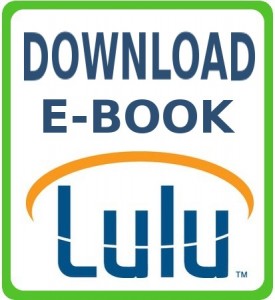We punish ourselves over and over for a mistake we made or some way in which we don’t measure up to perfection. Why? Is it fair? No other animal punishes itself over and over again for a single crime. That is not true justice. — Don Miguel Ruiz [1]
There are few things as painful as living in constant guilt over something you’ve done. If you’re like most people, you’re probably your worst critic, and when you feel that a skeleton was your fault, it’s hard to move on and accept it. How can you forgive yourself for something you did which had such awful results? Let’s explore several keys to forgiveness.
Key 1: You are Human. Imagine a crowded subway station, full of the sights and smells of humanity. There you are, in the midst of the crowd, waiting for your train. There are tall people, short people, smelly people, pretty people, old people, children… Suddenly you realize — we are all the same. We’re all human.
I have found it very helpful in dealing with my skeletons to remember that I am human; I am like every other person on Earth. I’m not any better or any worse than anyone else. Sometimes, you might get into a thought pattern where you don’t like who you are, but this is an issue of you liking yourself, an issue of ego, not an issue of who you actually are. You and I are awesome, even if we don’t always know it. Our society promotes dissatisfaction and comparing, even self-loathing, but we can decide to be different — to like or even love who we are. And part of loving who you are is forgiving yourself, because it’s natural to forgive the one we love.
Do you ever think that God can forgive others, but not you? What makes you think you are so much worse than other people? Maybe you did terrible things, knowingly, on purpose to hurt someone else. You aren’t the first; if you think God can’t or won’t forgive you, this is an issue of ego, too. You can never be so far gone that the love of the Universe cannot reach you — that’s impossible! There is no distance to God. Spirit is everywhere, so it is always present for you to connect with, and forgiveness is just a thought away.
Key 2: Mistakes are Normal. The “putting myself in perspective” train of thought helps me to realize that mistakes are natural and nothing to be ashamed about. Everybody makes them! Mistakes provide an opportunity to learn, and when we have enough sense to know and admit we did something wrong, then we also have the potential to learn something from it. You can turn your Category-D skeletons (things you consider your fault) into experiences of growth. Some situations are extremely hard to go through, but if you have learned something — anything — then use that tough-lesson-learned to help you decrease your resentment, and grow in wisdom, character and compassion. Start now and see if you can identify lessons learned from each of your skeletons — and don’t feel bad if you had a few repeats. Haven’t we all! Be kind to yourself.
Key 3: Forgiveness is a Trait. I recently had this flash of insight: forgiveness is a trait, not an act. It is like peace or wisdom; it is something you have inside you, not something you do to someone else. Let’s consider peace — you can have peace, but you can’t pacify someone else. Even if you subdue them, you aren’t pacifying them. They are resisting all the while. You cannot definitively give someone else peace, or force them to be peaceful — he or she needs to find it or create it in themselves. In a similar way, you can’t force someone to have wisdom. It makes no sense to say “I wizen you.” I believe that likewise, it makes no sense to say “I forgive you.” I have forgiveness in me, and that forgiveness extends to others around me, to myself, to situations, to the present moment, and to the world.
This may be a huge shift in consciousness for you. You may have been raised to think that only God really forgives people, and he may or may not forgive you. Why not try thinking that God gives forgiveness (forgiveness as a trait) instead of God forgiving people (forgiveness as an act). God is the Source of forgiveness (along with love, peace, grace, etc.) but you and I can choose whether or not to accept it. It’s like when someone gives you a compliment — you can choose to accept it gracefully and believe it, or you can choose to not believe it and argue with it instead, which will probably make you feel crummy. We can accept what Source offers us, gracefully and gratefully, or refuse the gift and feel worse. When we accept it, we still need to take it into our heart and mind.
If you feel you need to cultivate more forgiveness (as a trait) in yourself, that’s great; you are taking responsibility for your attitude of unforgiveness. You are recognizing that you aren’t full of peace, and deciding to do something about it. It’s another way of breaking out of the victim mentality. Your life will change dramatically by telling yourself and the universe that you want to be more accepting of everything in your life. Forgiveness is another facet of living in the present, accepting life, and appreciating it.
Key 4: You are only responsible for yourself. Think of a specific skeleton that you feel guilty about. If you analyze the whole event, can you really say that you are solely responsible for the way it turned out? Ninety-nine percent of the time there are other people involved. Don’t fall into the trap of taking on guilt for other people’s parts. We are each responsible for our individual part, and even if you feel like you influenced someone to act a certain way, ultimately, he/she is the one who acted. You are not responsible for what other people do, only for what you do. So, remove any guilt that you may feel over other people choosing their own actions.
You may be thinking “it’s not as simple as just removing the guilt and *poof* it’s gone!” But remember, your thoughts determine your reality, so if you decide to remove it, it’s gone. You may not be able to re-write your thought patterns overnight, but you can do it. It starts simply, with awareness of what your thoughts are. Rather than an instant *poof,* you can think of diluting your feelings of guilt. Like making juice from concentrate, when you add water, you dilute the juice and it becomes weaker, less concentrated. If you keep adding positive thoughts to your guilt, focused on love, peace and acceptance, you can dilute the guilt and find it easier to remove.
Key 5: Expand your view. Do you ever think that God forgives small things, but you did something so horrible, “he just can’t forgive this.” Since God won’t forgive you, how can you forgive yourself? Let me give you two things to think about. First, look for self-forgiveness inside. Accept the present moment and grow forgiveness by letting go of your expectations of life. Love the present. It is perfect just the way it is, warts and all. A handicapped baby is still beautiful, and you, however “messed up” you may seem, are too. Second, thinking “God can’t forgive me” is very much limiting and personifying God. God is more than a being that gives or withholds love or forgiveness; he — or should I say “it” — is Love. God/Source/Spirit, is the very principle of Love. It is so great, so all-encompassing, so beyond-this-world… Spirit simply does not see us as a collection of things we have done. Your mistakes do not change God’s view of you, no matter how big they are. (Neither do your accomplishments, by the way.)
To forgive yourself from “he just can’t forgive this” mistakes or “I knew better but did it anyway” mistakes, acknowledge that unbelievable forgiveness and grace covers/saturates all your skeletons and can even remove the effects of them; it’s up to you to simply realize it. Stop focusing on the past, and put all your energy into how you spend this and every moment. It does not matter what you have done or not done since the mistake, today is a new day and you can start over, learning, moving on, and making a new commitment to love yourself and others the best you know how. Face your uncomfortable feelings, have wave experiences, and see what insights you receive.
In general, what’s going on when we don’t forgive ourselves? One part of us won’t forgive another part of us. Have you ever thought “exactly what part of me is not forgiving part the other part… Am I one person or two?” Well, the non-forgiving part is your ego. It thrives on conflict, and loves to judge, neither of which promotes forgiveness. When you won’t forgive yourself, your ego is thriving. Reducing your ego will help — just be aware of it, and focus on dwelling in and loving the present moment. I highly recommend you read A New Earth by Eckhart Tolle for much more about the ego and being friends with the present moment. [2]
Key 6: Forgive another, forgive yourself. You may have heard that when you forgive someone, it is more for your good, than for the person you are forgiving. When you won’t forgive someone, it hurts you, not them. Sometimes the person we need to forgive is dead, so it certainly doesn’t hurt them. When you refuse to forgive another, it is exactly the same as refusing to forgive yourself. What you do to another, you do to yourself. When you refuse to forgive, you are also refusing to love yourself, trust yourself, and allow yourself to be happy or have any peace. That’s not a very good way to live, without love or trust, happiness or peace. Unforgiveness is a dark cloud that hangs over you, and no matter what distraction you may try, it sticks to you like a leech. It may take a while, but grow the attitude of forgiveness — starting small is good — and soon you will be able to extend it to yourself and everyone who has wronged you.
Think of the Children
Imagine a couple of parents, full of joy as they take care of their newborn baby girl. They don’t see her actions as mistakes, feel disappointed when she burps or saddened when she poops! They love her and know that she’s just a baby, doing what she has to do, or what she knows how to do. A baby doesn’t know any better. In many cases, that is the same with us; we may think we know everything, but we don’t. We’re just doing what we know how to do. We may think God/Spirit is disappointed by something we’ve done, but it isn’t. God isn’t a person, remember? The problem with thinking of God as a parent is that we think of “him” as an authority, separate from us, there to judge and punish us. We think of God as having the ultimate parent ego, and us the child. Remember what the child ego is like? It is needy and whiney — how many of us whine and complain to God! How can you stop whining? Stop thinking of God as a parent (and you the child), take more responsibility for your actions, and overall, be more thankful. It’s as simple as that.
When we operate in this parent/child analogy, we also tend to bring along any baggage we may have from our particular family situations. If you had a rough childhood and/or don’t respect your parents, it’s especially important to stop using the Parent/Child analogy for God. Your past can contribute towards many harmful beliefs. So much good comes when we instead focus on no separation between us and Spirit, and think of ourselves as offshoots of Source, or manifestations of Spirit. When you do this, you’ll expand your idea of God and change your perspective radically, from one of parent versus child to universal Essence and unified entities.
Don’t forget that good comes from every skeleton. The good things can be very hard to see in the short term, but if you open your eyes and look — you may have to really search — you will see good coming out of your mistakes. Use the discovery of those good things to help you create more forgiveness in yourself, and dissolve your guilt.
With every bit of forgiveness you cultivate, you will feel a weight off your shoulders. You may think of diluting or dissolving the guilt, working in stages, but at some point, you may need to decide that you have finished the process of forgiving yourself, and you are forgiven. You’ll feel altogether lighter! When you see a skeleton in your closet and it tries to make you feel guilty, just smile and say “I am full of forgiveness.”
Tell yourself this: I am full of forgiveness. I am doing things every day to cultivate forgiveness in myself, and adopting an attitude of acceptance of everything in this moment. I take responsibility for myself, and I am kind to myself.
Footnotes
- The Four Agreements. Don Miguel Ruiz. Amber Allen Publishing, San Rafael, CA. 1997. ISBN 1-878424-31-9
- A New Earth. Eckhart Tolle. Penguin Books, London, England. 2005. ISBN 978-0-452-28996-3








